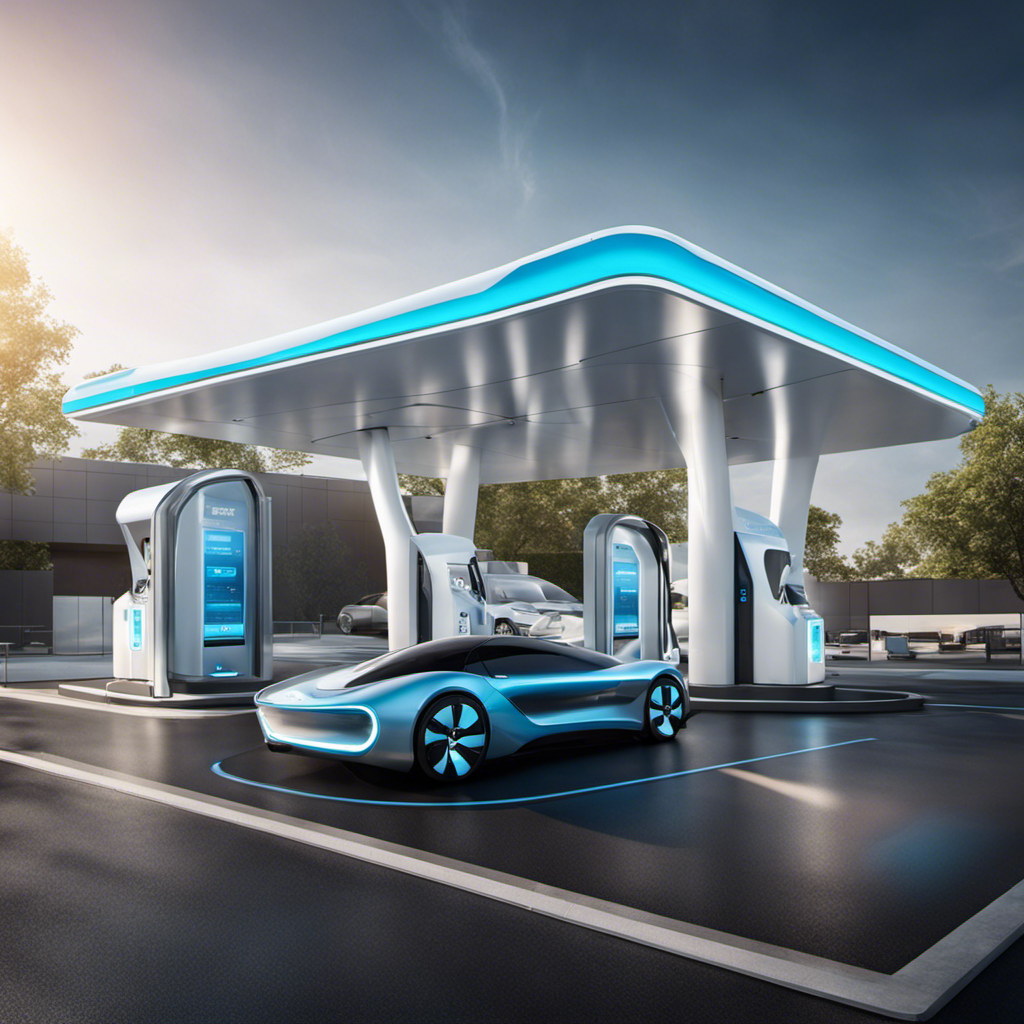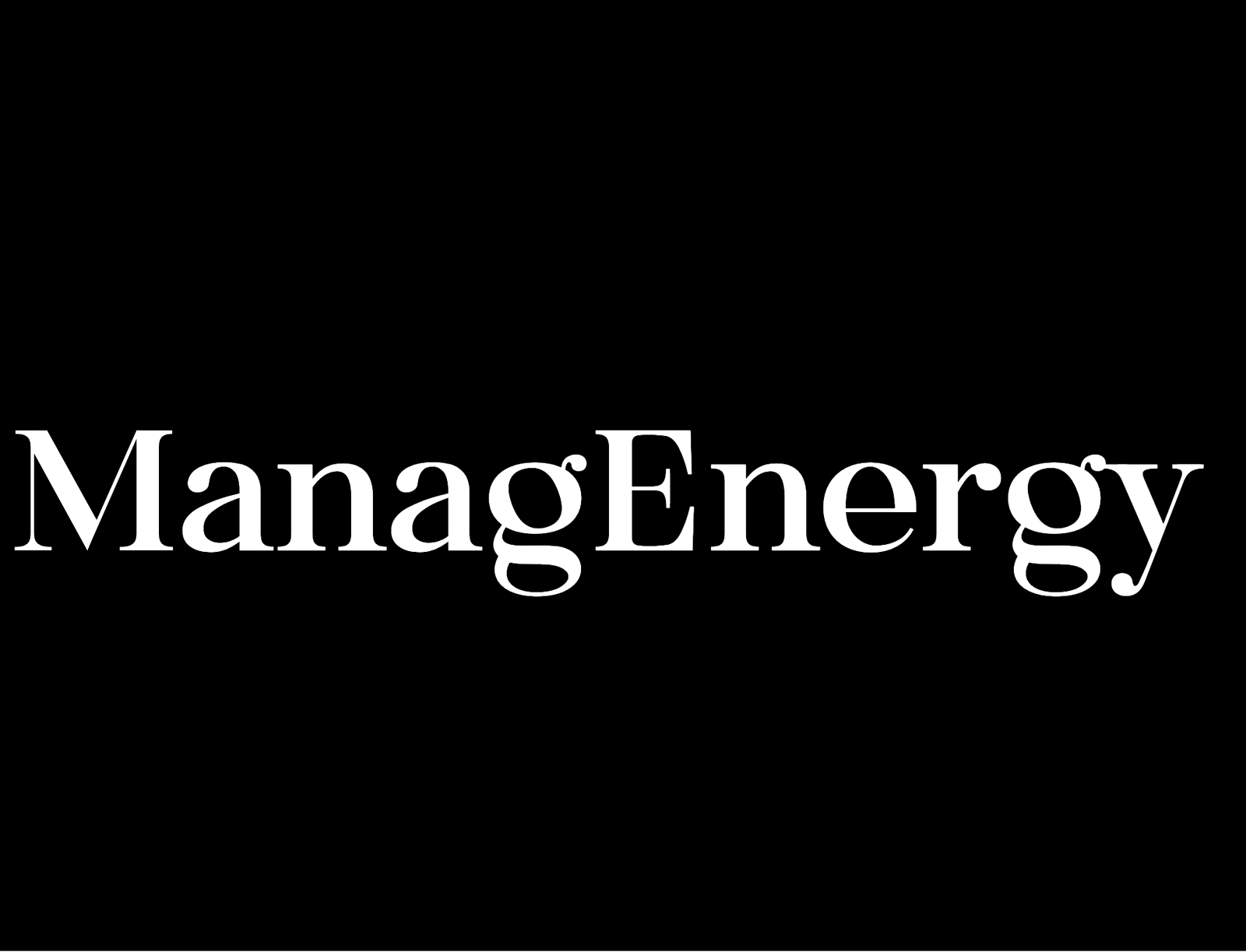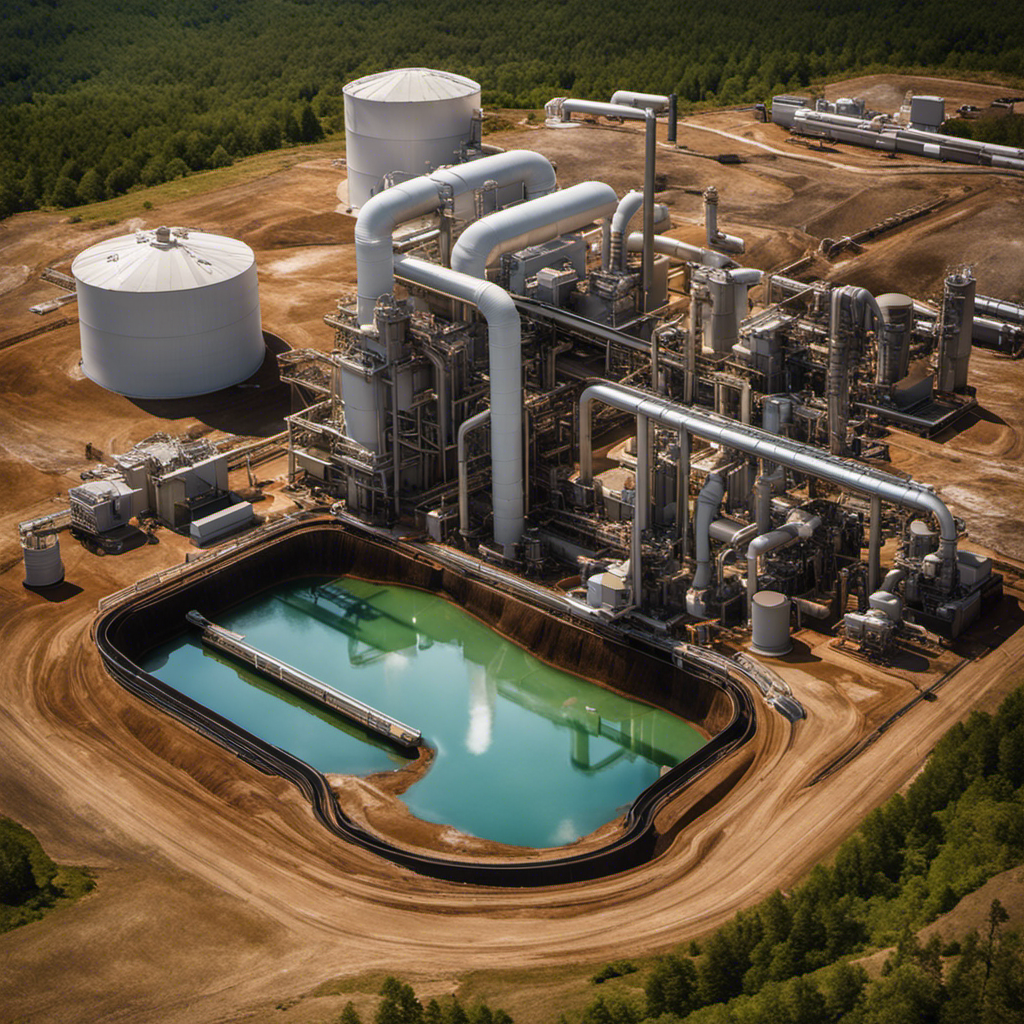Hydrogen Fuel
Is Hydrogen Fuel Dangerous

As an expert in energy safety, I can confidently say that hydrogen fuel is not as dangerous as some may believe. While its flammability may raise concerns, proper storage and transportation practices greatly reduce the risk.
In fact, numerous safety measures and regulations are in place to ensure its safe usage. This article will delve into the properties of hydrogen fuel, examine potential hazards, and compare the risks and benefits, shedding light on the truth behind its perceived danger.
Key Takeaways
- Hydrogen fuel is highly flammable and can be explosive, requiring careful handling and storage procedures.
- Specialized containers and infrastructure are needed for the storage and transportation of hydrogen fuel.
- Proper safety measures, protocols, and training are crucial to prevent accidents and ensure safe handling of hydrogen fuel.
- Although hydrogen fuel carries risks, advancements in technology and safety regulations have minimized these risks, and it offers benefits such as zero greenhouse gas emissions and the ability to be produced from renewable sources.
The Properties of Hydrogen Fuel
I’ve learned that hydrogen fuel is highly flammable and can be explosive. It’s important to understand the properties of hydrogen fuel in order to assess its potential dangers.
Hydrogen fuel is produced through various methods, such as steam methane reforming and electrolysis. It’s commonly used in fuel cells to generate electricity, as well as in the transportation sector for vehicles powered by hydrogen fuel cells.
However, due to its flammable nature, precautions must be taken during its production, storage, and usage. Hydrogen fuel has the potential to be a clean and sustainable energy source, but its safety concerns must be addressed and managed effectively to ensure its widespread adoption.
Storage and Transportation of Hydrogen Fuel
Storing and transporting hydrogen can pose significant challenges due to its high flammability. Hydrogen fuel storage requires specialized containers and infrastructure to ensure safety. There are several methods for storing hydrogen, including compressed gas, liquid, and solid-state storage. Each method has its advantages and limitations in terms of energy density, cost, and safety.
When it comes to transportation, pipelines are the most common method for moving hydrogen over long distances. However, they require careful maintenance to prevent leaks and ensure the integrity of the pipeline system. Additionally, hydrogen can be transported using high-pressure gas cylinders or cryogenic liquid containers.
Proper handling and storage procedures are crucial to minimize the risk of accidents and ensure the safe transportation of hydrogen fuel. Understanding the challenges involved in storage and transportation is essential for the broader adoption of hydrogen as a clean energy source.
Now let’s explore the potential hazards of hydrogen fuel.
Potential Hazards of Hydrogen Fuel
One potential hazard of hydrogen is its high flammability, which requires careful handling and storage procedures. Safety precautions and accident prevention measures play a crucial role in mitigating the risks associated with hydrogen fuel.
To ensure safe handling, storage facilities must be designed with specialized equipment and materials that can withstand the unique characteristics of hydrogen. This includes using explosion-proof containers and incorporating ventilation systems to prevent the accumulation of hydrogen gas.
Strict protocols should be followed during transportation, such as using dedicated pipelines or specially designed tanks that are resistant to leaks and ruptures. Adequate training and education for personnel involved in the handling and transportation of hydrogen are also essential.
Safety Measures and Regulations for Hydrogen Fuel
To ensure safety when handling and storing hydrogen, it is crucial to follow strict regulations and implement effective safety measures. Safety guidelines and industry standards have been developed to minimize the risks associated with hydrogen fuel. These guidelines cover various aspects, including transportation, storage, and usage of hydrogen. Compliance with these regulations is essential to prevent accidents and ensure the safe operation of hydrogen systems.
When handling hydrogen, it is important to be aware of the potential hazards and take necessary precautions. This can include using proper ventilation systems, installing gas detectors, and implementing emergency response plans. Training and education are also crucial for personnel involved in hydrogen operations to understand the risks and know how to respond in case of an incident.
In order to illustrate the importance of safety measures, here is a table outlining some key guidelines and industry standards for handling hydrogen:
| Safety Measure | Description |
|---|---|
| Ventilation Requirements | Proper ventilation is essential to prevent hydrogen buildup and reduce the risk of fire or explosion. |
| Gas Detection Systems | Installing gas detectors helps to quickly identify any leaks or potential hazards. |
| Emergency Response Plans | Having well-defined plans in place ensures a prompt and effective response in case of an incident. |
Comparing the Risks and Benefits of Hydrogen Fuel
As an advocate for renewable energy, I believe it’s important to weigh the potential risks and benefits of using hydrogen as a fuel source.
When considering the safety considerations of hydrogen fuel, it’s crucial to note that hydrogen is highly flammable and can be explosive in certain conditions. However, advancements in technology and safety regulations have greatly minimized these risks.
It’s also important to assess the environmental impact of hydrogen fuel. One of the key benefits of hydrogen is that it produces no greenhouse gas emissions when used as a fuel. Additionally, hydrogen can be produced from renewable sources, further reducing its environmental footprint.
Lastly, hydrogen fuel cells have the potential to revolutionize transportation by providing long-range and quick refueling capabilities.
Frequently Asked Questions
How Does Hydrogen Fuel Compare to Other Alternative Fuels in Terms of Safety?
When comparing hydrogen fuel to other alternative fuels in terms of safety, it’s important to consider its advantages and disadvantages.
In terms of safety, hydrogen fuel has some unique characteristics. While hydrogen is highly flammable and can form explosive mixtures with air, it’s lighter than air and quickly dissipates. This reduces the risk of lingering fuel in case of a leak.
Additionally, hydrogen fuel doesn’t produce harmful emissions, which can have positive environmental impacts when compared to traditional fuels.
Can Hydrogen Fuel Cause Explosions or Fires?
Hydrogen fuel has the potential to cause explosions or fires due to its highly flammable nature. The safety risks associated with hydrogen fuel storage and infrastructure are a concern. Proper handling and storage protocols must be followed to minimize the risk of accidents.
However, advancements in technology and safety measures are continuously being developed to ensure the safe use of hydrogen fuel as an alternative energy source.
What Are the Safety Protocols for Handling Hydrogen Fuel in Residential Settings?
Safety measures and storage guidelines are crucial when handling hydrogen fuel in residential settings. Proper protocols must be followed to ensure the safe usage and storage of this highly flammable substance. It’s essential to have adequate ventilation, secure containers, and regular inspections to prevent leaks or accidents.
Additionally, training on proper handling techniques and emergency response procedures should be provided to residents. By implementing these safety protocols, the risks associated with hydrogen fuel can be effectively minimized.
Are There Any Long-Term Health Risks Associated With the Use of Hydrogen Fuel?
Health effects and environmental impact are important considerations when evaluating the use of hydrogen fuel.
It’s crucial to understand any potential long-term health risks that may be associated with its use.
Additionally, the impact on the environment should be carefully examined to ensure that hydrogen fuel is a sustainable and safe alternative.
How Does Hydrogen Fuel Storage and Transportation Differ From Traditional Fuel Sources?
When comparing hydrogen fuel storage and transportation to traditional fuel sources, it’s important to consider the differences in:
-
Infrastructure: The infrastructure for hydrogen fuel involves specialized storage tanks and pipelines, as well as fueling stations.
-
Efficiency: Hydrogen fuel has a higher energy content per unit of mass compared to traditional fuels, which can result in improved efficiency.
These factors highlight the unique aspects of hydrogen fuel and its potential as a viable alternative in the future.
Conclusion
In conclusion, while hydrogen fuel does pose certain hazards, such as its flammability and the challenges associated with storage and transportation, proper safety measures and regulations can mitigate these risks.
As the saying goes, ‘With great power comes great responsibility.’ It’s crucial to weigh the potential dangers against the numerous benefits of hydrogen fuel, such as its environmental friendliness and potential for renewable energy.
Overall, careful handling and adherence to safety protocols can ensure the safe and efficient use of hydrogen fuel.
Hydrogen Fuel
Will Hydrogen Fuel Cars

As a researcher in the field of alternative fuel technologies, I find myself constantly exploring the possibilities and limitations of hydrogen fuel cars. While these vehicles offer a promising solution to our pressing environmental concerns, there are also challenges that need to be addressed.
In this article, we will delve into the advantages and disadvantages of hydrogen fuel cars, examine their current state of development, and discuss the potential for widespread adoption. Join me as we navigate through the intricate landscape of hydrogen fuel cars and shed light on their future.
Key Takeaways
- Hydrogen fuel cars offer higher energy efficiency compared to internal combustion engines.
- The limited availability of refueling stations is a major disadvantage for hydrogen fuel cars.
- The current state of hydrogen fuel car development includes advancements in fuel cell technology and efforts to expand infrastructure development.
- The potential for widespread adoption of hydrogen fuel cars depends on the establishment of hydrogen infrastructure and addressing cost considerations in production, distribution, and storage.
The Advantages of Hydrogen Fuel Cars
I believe that hydrogen fuel cars offer numerous advantages over traditional gasoline-powered vehicles. One of the main advantages is the significant efficiency improvements they provide.
Hydrogen fuel cells convert chemical energy directly into electrical energy, resulting in higher energy efficiency compared to internal combustion engines. This means that more of the energy from the fuel is used to power the vehicle, resulting in improved fuel economy and reduced operating costs.
Additionally, hydrogen fuel cars produce zero emissions at the tailpipe, which offers significant environmental benefits. The only byproduct of hydrogen fuel cell technology is water vapor, making it a clean and sustainable alternative to gasoline. This not only reduces air pollution but also helps combat climate change.
Overall, the efficiency improvements and environmental benefits make hydrogen fuel cars a promising solution for a greener and more sustainable future.
The Disadvantages of Hydrogen Fuel Cars
One drawback of using hydrogen as a fuel source for vehicles is the limited availability of refueling stations. While hydrogen fuel cell cars offer numerous advantages, such as zero emissions and longer driving ranges, the lack of refueling infrastructure poses a significant challenge for widespread adoption. Currently, there are only a limited number of hydrogen refueling stations worldwide, making it inconvenient for drivers to find a station and refuel their vehicles. This limitation hinders the potential growth of hydrogen fuel cars and discourages consumers from investing in this technology. To illustrate the scarcity of refueling stations, consider the following table:
| Country | Number of Hydrogen Refueling Stations |
|---|---|
| United States | 42 |
| Japan | 117 |
| Germany | 81 |
| South Korea | 35 |
| United Kingdom | 17 |
As shown in the table, even in countries with relatively high numbers of refueling stations, the availability is still limited compared to traditional gasoline stations. This limitation highlights the need for further investment in infrastructure development to overcome the challenges of hydrogen fuel cars.
The Current State of Hydrogen Fuel Car Development
As a driver, I’ve noticed a growing interest in hydrogen as a potential alternative to traditional gasoline. The current state of hydrogen fuel car development is marked by several technological advancements and ongoing challenges. Here are some key points to consider:
-
Advancements in fuel cell technology: Researchers have made significant progress in increasing the efficiency and durability of fuel cells, which are used to convert hydrogen into electricity. This has led to improved performance and longer driving ranges for hydrogen fuel cars.
-
Infrastructure development: The establishment of hydrogen refueling stations is essential for the widespread adoption of these vehicles. Efforts are underway to expand the infrastructure network, but it remains a challenge due to high costs and limited availability.
-
Cost reduction: The production and storage of hydrogen still pose challenges in terms of cost-effectiveness. However, ongoing research and development are focused on finding innovative solutions to make hydrogen fuel more affordable.
Despite these challenges, the potential for widespread adoption of hydrogen fuel cars is promising. With further technological advancements and increased investment in infrastructure, hydrogen has the potential to become a viable and sustainable alternative to gasoline in the near future.
The Potential for Widespread Adoption of Hydrogen Fuel Cars
With further advancements in technology and increased investment in infrastructure, widespread adoption of hydrogen as a viable alternative to traditional gasoline is a promising possibility. However, there are several infrastructure challenges and cost considerations that need to be addressed for this transition to occur.
Firstly, the establishment of a hydrogen infrastructure is crucial. This includes the construction of hydrogen fueling stations, storage facilities, and transportation networks. Currently, the lack of infrastructure hinders the widespread adoption of hydrogen fuel cars.
Additionally, cost considerations play a significant role. The production, distribution, and storage of hydrogen fuel require substantial investment. The cost of building and maintaining the necessary infrastructure, as well as the cost of producing hydrogen fuel, must be competitive with traditional gasoline for widespread adoption to occur.
As technology and infrastructure continue to advance, addressing these challenges will pave the way for the widespread adoption of hydrogen fuel cars.
The Future of Hydrogen Fuel Cars
In the future, I believe hydrogen-powered vehicles have the potential to revolutionize transportation and reduce our dependence on fossil fuels. The technological advancements in hydrogen fuel cell technology are paving the way for a more sustainable and efficient mode of transportation.
Here are three reasons why hydrogen fuel cars are a promising alternative to electric vehicles:
-
Superior range: Hydrogen fuel cars can travel longer distances compared to electric vehicles, eliminating concerns about range anxiety.
-
Faster refueling: Unlike electric vehicles that require hours to recharge, hydrogen fuel cars can be refueled in just a few minutes, providing a more convenient experience for drivers.
-
Zero emissions: Hydrogen fuel cars produce only water vapor as a byproduct, making them truly emission-free and contributing to cleaner air quality.
With ongoing advancements in hydrogen fuel cell technology and the environmental benefits it offers, hydrogen-powered vehicles are poised to play a significant role in the future of transportation.
Frequently Asked Questions
How Expensive Are Hydrogen Fuel Cars Compared to Traditional Gasoline-Powered Cars?
Hydrogen fuel cars are more expensive than traditional gasoline-powered cars due to the high cost of producing and storing hydrogen. Additionally, market demand for these cars is currently low, further impacting their affordability and widespread adoption.
What Is the Availability of Hydrogen Fueling Stations and Infrastructure?
Hydrogen fueling stations and infrastructure availability are key factors for the widespread adoption of hydrogen fuel cars. The availability of these stations and the development of a robust infrastructure are crucial for the success of hydrogen as a viable alternative to gasoline.
Are There Any Safety Concerns Associated With Hydrogen Fuel Cars?
Safety concerns with hydrogen fuel cars include the risk of leaks or explosions due to the highly flammable nature of hydrogen gas. Maintenance considerations include the need for specialized equipment and trained technicians to handle and repair the fuel cell system.
How Does the Efficiency of Hydrogen Fuel Cars Compare to Other Alternative Fuel Vehicles?
Efficiency comparison and performance analysis of hydrogen fuel cars against other alternative fuel vehicles show promising results. Research suggests that hydrogen fuel cells offer high energy conversion rates and longer driving ranges, making them a viable option for sustainable transportation.
What Are the Environmental Impacts of Producing Hydrogen for Fuel?
Producing hydrogen for fuel has environmental benefits, but it also requires significant energy consumption. However, advancements in renewable energy sources and more efficient production methods can mitigate these impacts and make hydrogen fuel a viable option.
Conclusion
In conclusion, hydrogen fuel cars show great potential as a clean and sustainable transportation solution.
Despite certain drawbacks, such as limited refueling infrastructure and high production costs, ongoing advancements in technology and government support are driving their development.
Like a beacon of hope in a world plagued by pollution, hydrogen fuel cars have the potential to revolutionize the automotive industry and pave the way towards a greener future.
Hydrogen Fuel
How Much Would Hydrogen Fuel Cost

As an energy enthusiast, I’ve often wondered about the cost of hydrogen fuel. It’s a promising alternative to traditional fossil fuels, but how much would it really set us back?
In this article, we’ll dive into the production costs, factors influencing pricing, and even compare it to the cost of fossil fuels.
We’ll also explore the role of infrastructure and potential future reductions in cost.
Get ready to uncover the truth behind the price tag of hydrogen fuel.
Key Takeaways
- Production efficiency and the use of renewable energy sources can lower the cost of hydrogen fuel.
- Government incentives and financial support offset the initial high costs of production and distribution.
- Hydrogen fuel produced from renewable sources emits no carbon dioxide, making it more environmentally friendly than fossil fuels.
- Government investment in infrastructure is crucial for affordability and ensuring a reliable supply chain for hydrogen fuel.
The Production Costs of Hydrogen Fuel
I can discuss the production costs of hydrogen fuel.
When it comes to producing hydrogen fuel, there are several factors that affect the overall cost. One of the key factors is production efficiency. The more efficient the production process is, the lower the costs will be.
Another important aspect is the source of hydrogen. Using renewable sources such as solar or wind power to produce hydrogen can significantly reduce production costs. These sources are abundant and have the potential to provide a sustainable and cost-effective solution.
Additionally, advancements in technology have also helped to lower production costs. As technologies continue to improve and become more efficient, the cost of producing hydrogen fuel is expected to decrease even further.
Overall, focusing on production efficiency and utilizing renewable sources are crucial in reducing the costs of hydrogen fuel production.
Factors Influencing the Cost of Hydrogen Fuel
Based on my research, it seems that several factors play a role in determining the price of hydrogen fuel. One of the key factors is government incentives. Governments around the world are investing in hydrogen fuel infrastructure and offering financial support to promote its adoption. These incentives can help offset the initial high costs of production and distribution, making hydrogen fuel more affordable for consumers.
Another factor is the use of renewable energy sources in the production of hydrogen. As renewable energy becomes more widespread, the cost of producing hydrogen through electrolysis using renewable electricity decreases. This can have a significant impact on the overall cost of hydrogen fuel, making it more competitive with traditional fossil fuels.
Comparing the Cost of Hydrogen Fuel to Traditional Fossil Fuels
Renewable energy sources have the potential to make hydrogen fuel more competitive with traditional fossil fuels in terms of affordability. When comparing the cost of hydrogen fuel to traditional fossil fuels, it’s important to consider both the environmental impact and the efficiency of each fuel source.
To evaluate the environmental impact, we can compare the carbon emissions of hydrogen fuel and fossil fuels. Hydrogen fuel, when produced from renewable sources such as wind or solar, emits no carbon dioxide during combustion. On the other hand, fossil fuels release significant amounts of carbon dioxide, contributing to climate change.
In terms of efficiency, hydrogen fuel cells have an advantage over internal combustion engines. While the overall efficiency of hydrogen fuel cells is lower than internal combustion engines, they’ve the potential to be more efficient when it comes to converting energy into useful work.
The Role of Infrastructure in the Cost of Hydrogen Fuel
When it comes to the affordability of hydrogen fuel, the role of infrastructure can’t be overlooked. The government plays a crucial role in the development and investment in infrastructure needed for hydrogen fuel production, distribution, and storage. Without a proper infrastructure in place, the cost of hydrogen fuel would remain high, hindering its widespread adoption.
The government’s investment in infrastructure is essential to lower the cost of production and ensure a reliable supply chain. By building hydrogen fueling stations and investing in research and development, the government can drive down the cost of hydrogen fuel. Additionally, infrastructure investments can create jobs and stimulate economic growth.
It’s clear that the role of government in investing in infrastructure is vital to making hydrogen fuel more affordable and accessible for all.
Potential Future Cost Reductions for Hydrogen Fuel
I believe that with advancements in technology, such as increased efficiency in electrolysis and improved fuel cell designs, the overall expenses associated with hydrogen production and utilization could potentially decrease in the future. This could be a result of potential innovations that could lead to cost reductions. One such innovation is the use of renewable energy sources for electrolysis, which would eliminate the need for fossil fuels and reduce production costs. Additionally, advancements in fuel cell designs could increase the lifespan and efficiency of these cells, further reducing costs. Market demand for hydrogen fuel is also expected to increase in the coming years, which could drive further research and development, leading to cost reductions. Overall, the future looks promising for the cost reduction of hydrogen fuel, making it a more viable and sustainable energy option.
| Advancements in Technology | Potential Cost Reductions |
|---|---|
| Increased efficiency in electrolysis | Lower production costs |
| Improved fuel cell designs | Increased lifespan and efficiency |
| Use of renewable energy sources | Elimination of fossil fuel dependency |
Frequently Asked Questions
How Does the Cost of Producing Hydrogen Fuel Compare to Other Renewable Energy Sources?
Comparative cost analysis of producing hydrogen fuel compared to other renewable energy sources reveals potential future market trends. It is important to examine factors such as production methods, scalability, and infrastructure development for a comprehensive understanding of cost competitiveness.
What Are the Main Challenges in Establishing a Widespread Hydrogen Fuel Infrastructure?
Establishing a widespread hydrogen fuel infrastructure poses challenges such as high initial costs, lack of refueling stations, and storage issues. Comparing the cost with other renewables, hydrogen fuel is currently more expensive but has the potential to decrease with technological advancements.
Are There Any Government Incentives or Subsidies Available to Offset the Cost of Hydrogen Fuel Production?
There are government incentives and subsidies available to offset the cost of hydrogen fuel production. These programs aim to promote the development and adoption of hydrogen technologies by providing financial support to industry players.
How Does the Cost of Hydrogen Fuel Storage and Transportation Impact Its Overall Cost?
The cost impact of hydrogen fuel storage and transportation is significant. It adds to the overall cost, making it less financially viable. This must be considered when evaluating the feasibility of hydrogen as a fuel source.
Are There Any Potential Environmental or Health Risks Associated With the Production and Use of Hydrogen Fuel?
There are potential environmental and health risks associated with the production and use of hydrogen fuel. It is important to consider these risks when evaluating the overall viability of hydrogen as a clean energy source.
Conclusion
In conclusion, the cost of hydrogen fuel is influenced by various factors such as production costs and infrastructure requirements.
While it may currently be more expensive compared to traditional fossil fuels, advancements in technology and economies of scale hold promise for future cost reductions.
As the saying goes, ‘every cloud has a silver lining,’ and the potential for affordable and sustainable hydrogen fuel may be just that, a bright spot in our energy future.
Hydrogen Fuel
When Will Hydrogen Fuel Cells Be Available

As a curious advocate for renewable energy, I’ve often wondered when hydrogen fuel cells will become widely available. Are we on the cusp of a breakthrough?
In this article, we’ll delve into the current state of hydrogen fuel cell technology, explore the latest advancements in research, and discuss the challenges that need to be overcome for commercialization.
Furthermore, we’ll examine government initiatives and policies that aim to accelerate the adoption of this promising technology.
Join me as we uncover the timeline for hydrogen fuel cells’ widespread availability.
Key Takeaways
- High efficiency: Fuel cells can convert up to 60% of hydrogen energy into electricity.
- Zero greenhouse gas emissions: Hydrogen fuel cells produce no harmful emissions.
- Potential to revolutionize energy systems: Hydrogen fuel cells have the potential to contribute to a sustainable future.
- Infrastructure development challenge: The key challenge lies in establishing the necessary infrastructure.
Current State of Hydrogen Fuel Cell Technology
I’m excited to see the progress being made in hydrogen fuel cell technology. Hydrogen fuel cells offer numerous advantages that make them a promising option for clean energy solutions.
One major advantage is their high efficiency, as fuel cells can convert up to 60% of the energy in hydrogen into electricity. Additionally, hydrogen fuel cells produce zero greenhouse gas emissions, making them environmentally friendly. They also offer versatility, as they can be used in a wide range of applications, from transportation to power generation.
Furthermore, hydrogen is a renewable resource that can be produced through various methods, such as electrolysis of water or through the reforming of natural gas. With these advantages, hydrogen fuel cells have the potential to revolutionize our energy systems and contribute to a sustainable future.
Now, let’s explore the advancements in hydrogen fuel cell research.
Advancements in Hydrogen Fuel Cell Research
I’m excited about the recent advancements in research on hydrogen fuel cell technology. It’s an area that holds a lot of promise for the future of clean energy.
Here are some key developments in this field:
-
Improved catalysts: Researchers are constantly working on finding more efficient catalysts to enhance the performance of fuel cells.
-
Higher energy density: The latest research focuses on increasing the energy density of hydrogen fuel cells, making them more powerful and long-lasting.
-
Cost reduction: Advancements in research aim to lower the production costs of fuel cells, making them more affordable and accessible.
-
Durability improvements: Researchers are working on enhancing the durability of fuel cells, ensuring they can withstand harsh conditions and have a longer lifespan.
-
Integration with renewable sources: Research is being conducted to integrate hydrogen fuel cells with renewable energy sources like solar and wind, creating a more sustainable energy system.
These advancements in research bring us closer to a future where hydrogen fuel cells can play a significant role in meeting our energy needs.
Challenges in Commercializing Hydrogen Fuel Cells
One challenge in commercializing hydrogen fuel cell technology is the lack of infrastructure to support widespread adoption. While hydrogen fuel cells have shown potential as a clean and efficient energy source, their commercial viability is hindered by the limited availability of refueling stations and transportation networks. Without a robust infrastructure, it becomes difficult for consumers and businesses to embrace hydrogen fuel cells as a viable alternative to traditional fossil fuel technologies. To illustrate the extent of this challenge, consider the following table:
| Infrastructure Development Challenges |
|---|
| Limited number of refueling stations |
| High costs associated with infrastructure development |
| Lack of standardized regulations and codes for hydrogen infrastructure |
These challenges highlight the need for concerted efforts in infrastructure development to pave the way for the widespread commercialization of hydrogen fuel cells.
Government Initiatives and Policies for Hydrogen Fuel Cells
The government’s initiatives and policies are crucial in driving the widespread adoption of hydrogen fuel cell technology. With their support and investment incentives, we’re seeing significant progress in the development and deployment of this clean energy solution.
Here are five key ways in which the government is driving the advancement of hydrogen fuel cells:
-
Funding research and development: The government is providing financial support for research institutions and companies to improve the efficiency and cost-effectiveness of hydrogen fuel cells.
-
Building refueling infrastructure: Governments are investing in the construction of hydrogen refueling stations to ensure that the necessary infrastructure is in place for the widespread use of fuel cell vehicles.
-
Offering tax incentives: Governments are providing tax credits and incentives to encourage individuals and businesses to adopt hydrogen fuel cell technology.
-
Setting emission standards: Governments are implementing stringent emission standards, which incentivize the use of zero-emission technologies like hydrogen fuel cells.
-
Collaborating with industry: Governments are working closely with industry stakeholders to develop regulatory frameworks and standards that support the safe and efficient use of hydrogen fuel cells.
Through these initiatives and policies, the government is playing a vital role in driving the adoption of hydrogen fuel cell technology and transitioning towards a more sustainable future.
Predictions and Timeline for Widespread Adoption of Hydrogen Fuel Cells
Based on current advancements and the growing interest in clean energy solutions, it seems likely that widespread adoption of hydrogen fuel cell technology could occur within the next decade. The market potential for hydrogen fuel cells is significant, with various industries and sectors recognizing the benefits of this technology. However, the key challenge lies in infrastructure development. To ensure the successful implementation of hydrogen fuel cells on a large scale, the necessary infrastructure needs to be put in place. This includes the establishment of hydrogen production facilities, distribution networks, and refueling stations. Governments and private sector players are investing in research and development to address these infrastructure requirements. Once the infrastructure is in place, hydrogen fuel cells have the potential to revolutionize transportation, power generation, and other sectors, offering a clean and sustainable energy solution.
| Advantages | Challenges | Solutions |
|---|---|---|
| Zero emissions | Limited infrastructure | Investment in infrastructure development |
| High energy density | Cost of production | Research and development for cost reduction |
| Versatile applications | Storage and transportation | Innovation in storage and transportation technologies |
| Fast refueling times | Public awareness and acceptance | Education and promotion campaigns |
Frequently Asked Questions
How Efficient Are Hydrogen Fuel Cells Compared to Traditional Combustion Engines?
Hydrogen fuel cells are more efficient than traditional combustion engines. They convert hydrogen and oxygen into electricity, emitting only water vapor. This clean energy source holds promise for reducing emissions and dependence on fossil fuels.
Are There Any Safety Concerns Associated With Using Hydrogen Fuel Cells?
Safety concerns with hydrogen fuel cells include the potential for leaks and the flammability of hydrogen gas. Additionally, the infrastructure required for widespread adoption, such as hydrogen refueling stations, is currently limited.
What Are the Potential Environmental Benefits of Hydrogen Fuel Cells?
The potential environmental benefits of hydrogen fuel cells include reduced greenhouse gas emissions and improved air quality. Additionally, they have the potential for significant economic impact and future applications in various industries.
Are There Any Limitations or Drawbacks to Using Hydrogen Fuel Cells?
There are several limitations and drawbacks to using hydrogen fuel cells, including high production costs, lack of infrastructure, and challenges with storage and transportation. However, ongoing research and advancements are addressing these issues.
How Does the Cost of Hydrogen Fuel Cells Compare to Other Alternative Energy Sources?
The cost of hydrogen fuel cells can vary depending on factors such as production scale and technological advancements. However, compared to solar power and wind energy, hydrogen fuel cells may currently be more expensive to implement on a large scale.
Conclusion
In conclusion, while hydrogen fuel cell technology has made significant advancements, there are still challenges to overcome before widespread adoption can occur.
The government’s initiatives and policies are crucial in supporting the development and commercialization of hydrogen fuel cells.
With continued research and collaboration, it’s anticipated that hydrogen fuel cells will become available in the near future.
As the saying goes, ‘Rome wasn’t built in a day,’ and the journey towards widespread use of hydrogen fuel cells requires patience and perseverance.
-

 Sustainable Supply Chain Management5 months ago
Sustainable Supply Chain Management5 months agoManagEnergy Acquires GPST2030.org Domain to Strengthen Commitment to Sustainable Transport
-

 Wind Energy5 months ago
Wind Energy5 months agoHow Much Oil Does It Take To Lubricate A Wind Turbine
-

 Electric Motorbike3 months ago
Electric Motorbike3 months agoCalifornia Electric Motorcycle Laws: A Comprehensive Guide to Riding Safely
-

 Solar4 months ago
Solar4 months agoIn 2009, About What Percent Of U.S. Energy Consumption Was Supplied By Solar Energy
-

 Electricity Vehicle3 months ago
Electricity Vehicle3 months agoThe Future of Electric Vehicles: Trends and Innovations to Watch
-

 Wind Energy3 months ago
Wind Energy3 months agoRevolutionizing Highways: Wind Turbines Take the Road to Renewable Energy
-

 Solar4 months ago
Solar4 months agoWhy Should We Use Solar Energy Instead Of Fossil Fuels
-

 Wind Energy4 months ago
Wind Energy4 months agoWhat Is The Minimum And Maximum Wind Speed For Operating A Wind Turbine





















